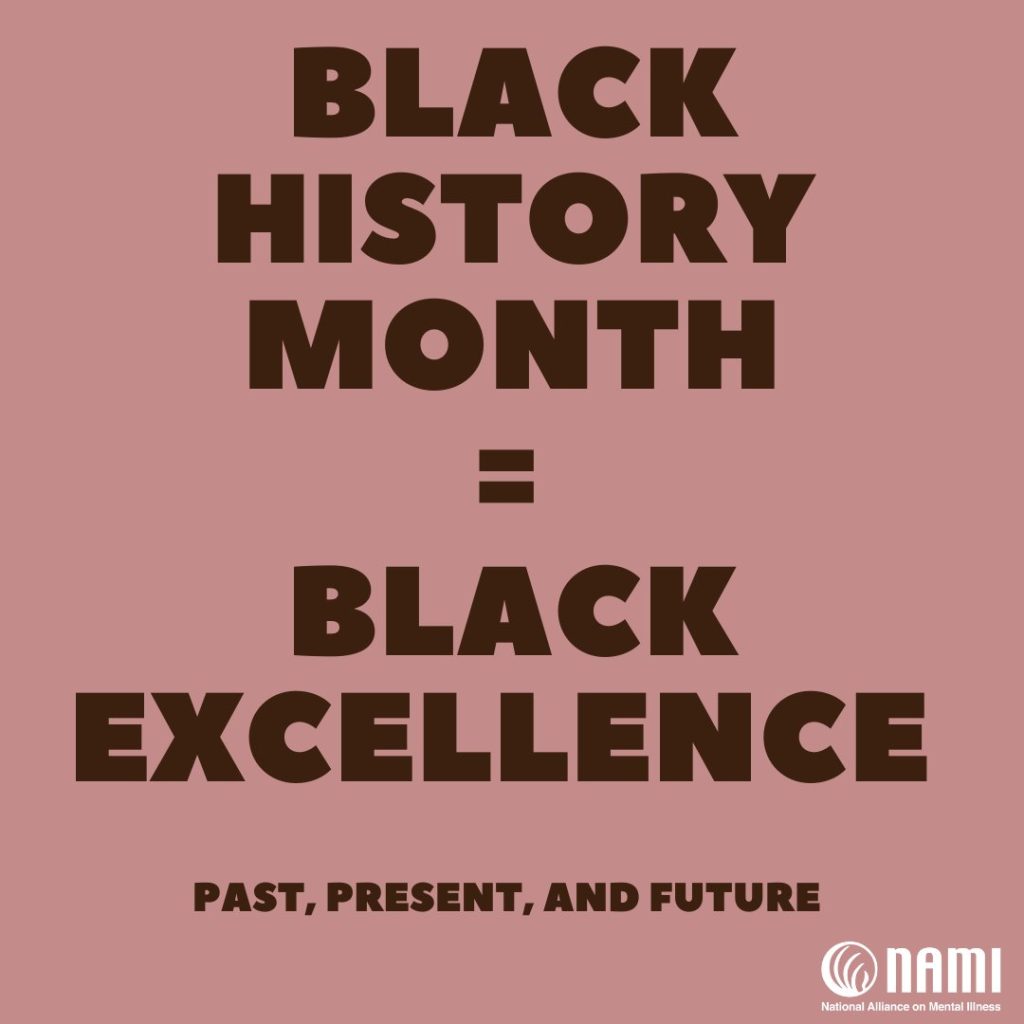
This year’s theme for Black History Month is “Black Health and Wellness.” From the Association for the Study of African American Life and History: “At this point in the 21st century, our understanding of Black health and wellness is broader and more nuanced than ever. Social media and podcasts, such as The Read, hosted by Crissle and Kid Fury have normalized talking about mental health and going to therapy as well as initiatives such as Therapy for Black Girls. More of us understand the need to hold down, lift up, center, and fight fiercely for our beloved trans siblings and family. Black girls are doing breathwork, and there are whole yoga studios dedicated to people of color…” Find more reading materials on the subject here.
When it comes to mental health and Black and African American communities, we know that community members often deal with more stigma and discrimination, and can receive compromised care. “The effect of racism and racial trauma on mental health is real and cannot be ignored. The disparity in access to mental health care in communities of color cannot be ignored. The inequality and lack of cultural competency in mental health treatment cannot be ignored,” says NAMI CEO Daniel H. Gillison Jr.
Our NAMI communities are working to support our Black communities. More in our guide to Mental Health and Black Communities.
We asked one of our Ending the Silence presenters, Angelique Henderson, to share thoughts on mental health challenges that face Black communities and what can we do to help improvements:
“It is essential that mental health education and mental health resources are prioritized. People are hurting and may not have the knowledge or vocabulary to articulate that hurt. It is also a consistent problem that getting therapy and/or medication is expensive. Fighting the stigma against mental health conditions is more important than ever before. With the present unprecedented national and international turmoil, people need to know: that their problems and feelings are valid, that they can safely open up about them, and that they can comfortably access the resources that they need without shame.”
